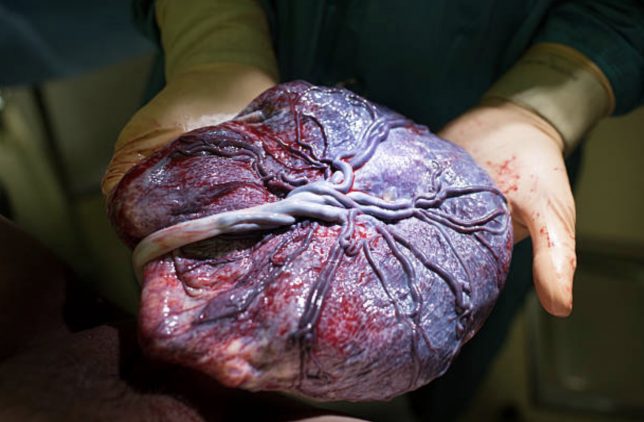A small pilot study of the effects of eating the placenta after birth (usually through encapsulation) was published this week. Not surprisingly, the study, published in Women and Birth, an Australian midwifery journal, found that consuming one’s placenta had no effect on maternal mood, maternal fatigue, or maternal-infant bonding, despite the bias of the authors towards finding an effect.
I say ‘not surprisingly’ because there was never any evidence that eating one’s placenta would impact these issues. Placental encapsulation, at its core, is a money-making scheme invented to sell a service; its proponents (or should I say proprietors) make wild and unsubstantiated claims about the benefits and take the money of new mothers.
The fact that consuming the placenta carries no health benefits isn’t really news. Here’s an excellent interview from 2015 that explores the history of placentophagy and other information from one of the authors of this 2015 review article of the literature concerning placentophagy, which also found no health benefits.
Worse, it’s likely harmful despite what Kim Kardashian, Alicia Silverstone, and other experts may have to say.
Last year, the CDC released a warning not to eat the placenta after reports of harm. One child became septic after getting GBS through the breast milk of a mom who had ordered placenta encapsulation from one of the leading sham companies that offer the service.
Unfortunately, placentophagy follows a pattern seen too often:
- Some people want to make money
- They make a wild claim about the benefits their product might have (insert legal disclaimers)
- They do no safety or efficacy studies on the product
- They dress the product up with undefined words like natural or organic
- They use social media and multilevel marketing to promote the product
- They promote it by attacking the people who actually do safety and efficacy trials on what they recommend (mmhmm, doctors)
- And, voilà, money is made and patients are harmed (or at least not helped)
Oh, and those who speak out must be part of a conspiracy to silence the truth – Corporate shills like me.
Okay.
But, wait, animals eat their placentas? Well, that part is true (except for camels). Many of them also eat their live young when hungry, lick their own butts, eat the raw intestines of other dead animals, and a lot of other gross things that humans are smart enough not to do. Trust me; I have a cat.
One last point: in this review from April, the authors report that 60% of OBs didn’t know whether they should recommend plancentophagy to their patients. That’s heart-breaking to me. How can practicing OB/Gyns not know enough to give a recommendation to their patients about something this relevant to childbirth? I guess I’ll have to keep writing…

